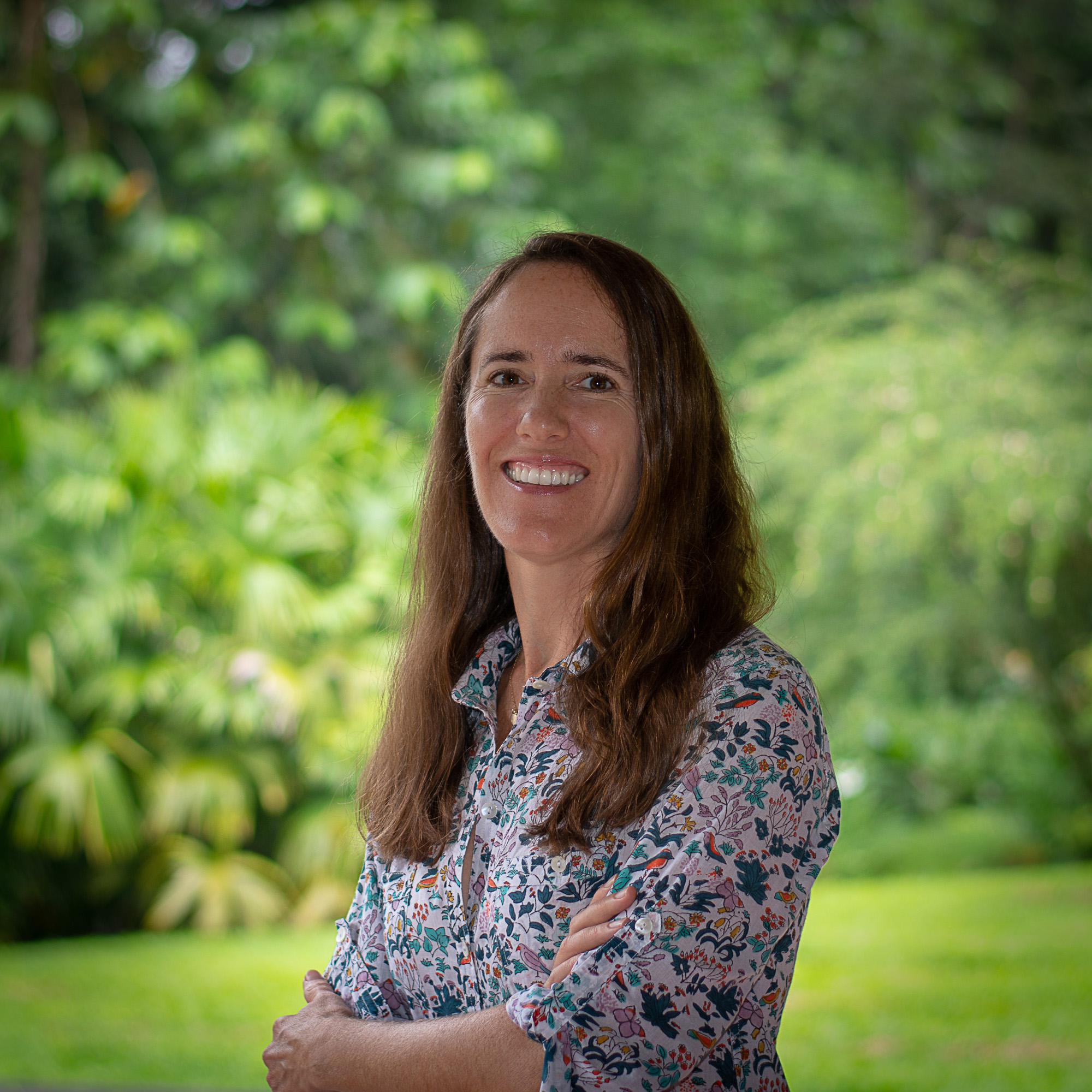To Emily Fintel Kaiser, going to work means building a better world.
As executive director of EARTH Futures, she and her team are powered by the vast knowledge that EARTH University has gained during more than three decades of existence – harnessing it to amplify our impact across the globe and serve a world in urgent need of innovative solutions.
In the following interview, Kaiser tells us how EARTH Futures is leading the way toward positive transformation in developing regions.
What is EARTH Futures?
EARTH Futures is a platform that was created in 2018 as part of the University’s new strategic plan. In essence, it seeks to grow the impact that EARTH can have, with the goal of building more prosperous and sustainable rural communities. We focus primarily on Latin America, the Caribbean, and the African continent – places where most of our students come from.
How do you measure your impact?
We set out to have an impact on the behavior of different institutions, on public policy, and mainly on the lives of people in rural communities.
How are the projects funded?
EARTH Futures was born under the promise of being a self-sustaining platform within EARTH. This is a promise we have honored. Our projects are funded by donors from different countries. In the future, through these partnerships, we hope to further promote the processes of positive change.
What kinds of projects are you developing?
EARTH Futures has two main pillars. The first, called “Education for Leadership”, is rooted in the academic experience of the University and its learning model, which is unique in the world. Based on this experience and in partnership with other institutions, we seek to transform agricultural education in developing regions – so that the training of new leaders is more effective. In one current project under this pillar, we are collaborating with Mastercard Foundation to launch a support program aimed at our African graduates as they return to their countries of origin, to ease the transition between university education and professional life.
The purpose of the second pillar, “Solutions Development”, is to identify, design, test, implement, and replicate solutions to some of the main challenges facing rural areas. We work in five sectors: sustainable agriculture & natural resources, technological innovation, entrepreneurship & job creation, climate change, and women’s economic empowerment. Under this pillar, we and the Walmart Foundation started an important project last year, which pursues three goals:
- To increase access to precision-agriculture technologies that boost the information available to producers about their farms, thereby enabling them to make better decisions.
- To connect producers with new opportunities and partners in local markets.
- To train future agricultural leaders in Costa Rica and Guatemala.
This project is expanding our presence in Guatemala. Thanks to partnerships with our graduates and other local actors, it is helping us understand how we can carry solutions beyond Costa Rica’s borders.
At EARTH, we are inspired by the creativity, strategy, and hard work of Emily Fintel Kaiser and her team. After all, for how many people does “going to work” mean radically improving lives?
